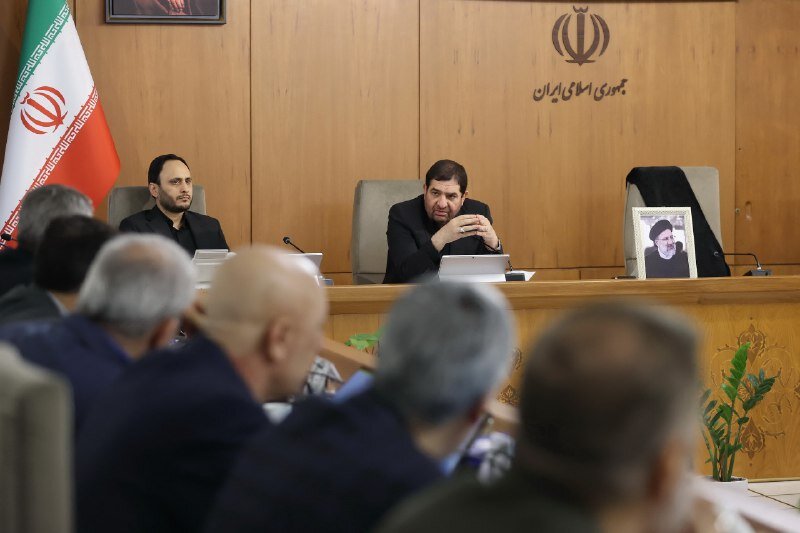Iran stands strong
What history teaches Iran's enemies about the future of the Islamic Republic

TEHRAN- The tragic loss of President Ebrahim Raisi and his Foreign Minister Hossein Amir Abdollahian has presented the nation with new challenges that resuscitated hope among adversaries about possibility of Iran plunging into a period of instability.
But, the Islamic Republic of Iran seems to be impervious to instability thanks to its historical roots and past experiences.
On Sunday, Iran was about to celebrate a new milestone in its diplomatic relations with the Republic of Azerbaijan after a year of tensions. With diligent efforts and constant following, the Raisi administration succeeded in addressing differences and disagreements with the South Caucasus nation over a series of geopolitical and bilateral issues. The joint inauguration of the Giz Galasi dam over a shared border river, for which President Raisi traveled to East Azerbaijan Province on the border with the Republic of Azerbaijan, seemed to be the latest breakthrough in Tehran-Baku relations. President Raisi and his Azerbaijani jointly inaugurated the dam, praising the steady improvement in bilateral ties.
For a moment, the Raisi administration appeared riding high in navigating the multifaceted internal and external challenges facing the Islamic Republic. Not long after inaugurating the joint dam project, the news of the incident involving President Raisi’s helicopter began to make global headlines. After long hours of mountain search efforts, President Raisi and Foreign Minister Amir Abdollahian, along their entourage, were found dead in the mountainous region of Varzaqan. The whole world came crashing down, with the Islamic Republic going through the rare experience of not having an elected president in office.
That made Iran’s foes rub their hands in glee over the tragic death of Raisi and his delegation, believing that the vacuum left by President Raisi would present them with another opportunity to destabilize the Islamic Republic.
Although the Iranian constitution stipulates a smooth process for power transition, speculation abounds about the challenges ahead.
But if history is any guide, the Islamic Republic will weather the storm, again.
While the loss of President Raisi is heavy and hard to cope with, the Islamic Republic has, over the course of its tumultuous history, experienced much tougher moments.
In late July 1981, while Iran was grappling with the Iraqi aggression on its territories, the first president of the Islamic Republic, Abolassan Bani Sadr, fled the country after getting impeached. That was the first big political vacuum the Islamic Republic faced in its early years.
Soon after the impeachment of Bani Sadr, the Islamic Republic held a presidential vote, leading to the election win of Mohammad Ali Rajaei, who raked in more than 12.7 million votes. A few days later, on August 30, 1981, President Rajaei, together with his Prime Minister Mohammad Javad Bahonar lost their lives in a massive explosion that rocked the office of the prime minister, leading to a seemingly unfillable political vacuum and a traumatized nation amid the war.
A few months earlier, on June 28, 1981, the office of the Islamic Republic Party was bombed which resulted in the death of Judiciary chief Ayatollah Mohammad Beheshti along with 72 other party members. The victims included 27 members of the Parliament, 4 ministers, 12 deputy ministers, and a big number of trusted cadres of the Islamic Revolution.
Exactly a day before the June 28 bombing, Ayatollah Seyed Ali Khamenei, who was an eloquent politician at the time, survived an attempted assassination, which maimed his right hand for life.
In conclusion, the Islamic Republic is not new to political vacuums and the sudden absence of political leaders. It has gone through numerous incidents involving the death or dismissal of prominent figures within the establishment. Its constitution regulates a smooth process for addressing big issues such as the death of President Raisi. This time, the Islamic Republic is better legally equipped and politically ready to cope with any political scenarios thanks to the strong base of support it enjoys among its populace.
